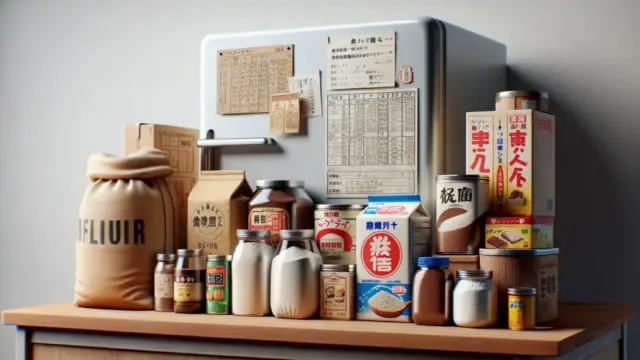Indonesian coffee holds a special place in the hearts of coffee lovers around the world. The diverse climates and soils of the region contribute to a rich array of flavors, giving each variety its own unique character. In this article, we’ll delve into the various types of Indonesian coffee, explore the distinctive traits of different regions, and uncover what makes this coffee so captivating.
By understanding the history of coffee production and its cultural background, you’ll be able to savor its flavors even more. Coffees from Java and Sulawesi, for instance, each boast their own unique characteristics. We’ll also touch on roasting and brewing methods, helping you find that perfect cup you’ve been searching for.
- Explore the history and culture of Indonesian coffee production
- Understand the unique characteristics of coffee from Java and Sulawesi
- Learn about the flavor differences influenced by roasting and brewing methods
The Allure of Indonesian Coffee
Indonesian coffee is cherished by coffee enthusiasts around the world for its remarkable diversity and rich flavors. The country’s unique geographical conditions and climate provide the perfect environment for cultivating a wide variety of coffee beans. In this section, we will delve into the history of coffee production in Indonesia and explore the cultural nuances that contribute to the allure of this beloved beverage.
A Brief History of Coffee Production in Indonesia
Coffee cultivation in Indonesia began in the 17th century, thanks to the Dutch, who established large coffee plantations to export aromatic coffee to Europe. Java Island, in particular, became the heart of Indonesia’s coffee production, as these plantations flourished. This historical backdrop has significantly influenced the quality of Indonesian coffee today.
Moreover, Indonesia boasts volcanic soil that is ideal for coffee cultivation, along with specific climate conditions that contribute to the unique flavors of the coffee beans. Coffee farming plays a vital role in the local economy, with numerous farmers dedicated to cultivating this important crop.
- Coffee production in Indonesia started in the 17th century
- Java Island serves as the center of coffee production
- Volcanic soil and climate are key factors in creating unique flavors
Unique Aspects of Coffee Culture
The coffee culture in Indonesia varies from region to region. For instance, on Sulawesi Island, drinking coffee is an integral part of daily communication, serving as a crucial time for strengthening bonds with friends and family. Additionally, there is a distinctive style of coffee consumption in Indonesia, where sugar and spices are often added to enhance the flavor.
Furthermore, there’s a growing interest in sustainability and organic farming within Indonesia’s coffee production. This shift allows consumers to enjoy high-quality coffee while making environmentally conscious choices.
- Diverse coffee cultures exist across different regions
- Coffee is considered a part of communication
- Growing interest in sustainability and organic farming
Types of Coffee by Region
Indonesian coffee showcases a variety of unique characteristics and flavors that differ from region to region. Notably, Java and Sulawesi islands produce distinct coffees shaped by their unique cultivation methods and climatic conditions. In this section, we’ll explore the types of coffee from these regions and what makes them special.
Coffee from Java Island
Java Island is one of Indonesia’s most renowned coffee-producing areas. Particularly known as “Java Coffee,” it is characterized by its deep richness and aromatic profile. The volcanic soil and high-altitude climate of Java contribute to a coffee bean with a rich flavor. Typically, Java Coffee is smooth and easy to drink, often with hints of nuts and chocolate.
Moreover, Java employs the “wet process” for coffee production. This method involves washing the fruit with water and fermenting it to enhance the flavor of the beans. As a result, Java Coffee offers a clear taste and a rich aftertaste.
- Java Coffee is known for its deep richness and aroma
- Volcanic soil and high-altitude climate create a rich flavor
- The wet process results in a clear taste
Coffee from Sulawesi Island
Sulawesi Island also produces unique coffee varieties. Sulawesi coffee, particularly from the Toraja region, is known for its full body and spicy flavor. This coffee is handpicked and sun-dried, which helps to preserve the robust flavor of the beans.
When deep-roasted, Sulawesi coffee’s distinctive flavor becomes even more pronounced, offering rich sweetness and a toasty aroma. Additionally, farmers on Sulawesi Island follow traditional practices while implementing sustainable agriculture methods, making their coffee production environmentally conscious.

If you found this article interesting, you might also enjoy “The Depth and Uniqueness of Indonesian Coffee—Differences in Regional Flavors”. This piece provides a detailed explanation of the flavor differences across regions in Indonesia for those looking to dive deeper into Indonesian coffee culture.
- Sulawesi coffee is full-bodied and spicy
- Handpicked and sun-dried using traditional methods
- Deep roasting reveals rich sweetness and a toasty aroma
The Impact of Roasting Methods on Coffee Flavor
The flavor of coffee is significantly influenced by the roasting method used, and Indonesian coffee is no exception. Depending on how it’s roasted, the taste and aroma of this coffee can vary widely. In this section, we will delve into the differences between light and dark roasts, exploring how the roasting process affects coffee flavor.
Differences Between Light and Dark Roasts
Lightly roasted coffee beans are roasted just enough to retain some of their greenish hue, resulting in a fruity and tangy profile. This roasting method enhances the coffee’s natural flavors, allowing you to savor bright aromas and a fruity sweetness, which are particularly enjoyable in Indonesian coffee.
On the other hand, dark roasted coffee beans are roasted for a longer period, leading to a richer, more robust flavor with toasty notes. This method minimizes acidity and highlights deep flavors reminiscent of nuts or chocolate. When Indonesian coffee is dark roasted, its distinctive characteristics become even more pronounced, offering a deep and satisfying taste.
- Light roasts are fruity and acidic.
- Dark roasts enhance toasty richness and depth.
- The roasting method affects the unique traits of Indonesian coffee.
The Roasting Process and Its Effects
The roasting process triggers chemical reactions in the coffee beans, playing a crucial role in flavor development. During roasting, moisture evaporates from the beans, and temperatures rise. This process causes the sugars within the beans to caramelize, generating a variety of aromatic compounds. The balance of these compounds can change depending on the time and temperature of roasting, ultimately affecting the final flavor.
Particularly for Indonesian coffee, the roasting method can greatly alter its flavor profile, making it essential to tailor the roasting process to the bean’s specific characteristics. Farmers and roasters select the optimal roasting techniques based on the bean’s origin and variety to provide the best possible coffee experience.

If you found this article interesting, you might also enjoy our in-depth piece on coffee flavors and characteristics: “A Comprehensive Guide to Coffee Varieties: Find Your Perfect Cup”. It offers detailed insights into various types of coffee beans and their unique traits—definitely worth checking out!
- Roasting is a vital process that triggers chemical reactions in the beans.
- Temperature and time significantly impact flavor.
- Indonesian coffee requires roasting methods tailored to its characteristics.
Coffee Brewing Methods and Their Characteristics
The method of brewing coffee is a crucial element in maximizing its flavors and aromas. Indonesian coffee offers a delightful array of tastes when paired with the right brewing technique. In this section, we’ll take a closer look at the French press and espresso methods, exploring the unique features of each.
The Allure of French Press
The French press is widely loved for its simplicity and ease of use. This method involves steeping coarsely ground coffee beans in hot water, followed by pressing the mixture after a few minutes to extract the coffee. One of the standout features of the French press is that it allows coffee oils and fine particles to pass through, resulting in a rich body and robust flavor.
When you brew Indonesian coffee using a French press, the inherent aromas and flavors of the beans are beautifully highlighted. Using a dark roast enhances this experience, providing a bold and toasty taste that is particularly recommended.
- French press is a simple and easy brewing method
- Coffee oils and fine particles create a rich flavor
- Perfect for dark roasts of Indonesian coffee
How to Make and Enjoy Espresso
Espresso is known for its rich, creamy profile, making it a popular brewing method worldwide. To create espresso, finely ground coffee beans are extracted under high pressure. This process results in a concentrated flavor and a creamy crema on top. When enjoying Indonesian coffee as espresso, full-bodied varieties like Toraja coffee bring out exquisite flavors.
Espresso can be enjoyed on its own or used as the base for a variety of drinks, such as cappuccinos and lattes, offering a wide range of enjoyment. Experimenting with different types of beans and roast levels adds to the fun of discovering new tastes.
- Espresso is a rich and creamy coffee
- Extracted under high pressure for concentrated flavor
- Indonesian coffee is versatile for various drink options
Summary
Indonesian coffee is a captivating beverage that offers a variety of flavors and brewing methods to explore. Coffees from Java and Sulawesi each have their own unique characteristics, and the roasting process can significantly alter their taste profiles. Particularly, using brewing methods like French press or espresso allows you to fully enjoy the rich flavors that Indonesian coffee has to offer.
When savoring coffee, it’s essential to choose the right brewing method based on the type of beans and the roast level. By discovering your favorite coffee, you can elevate your everyday moments into something truly special. We encourage you to give Indonesian coffee a try and experience its allure for yourself.
- Indonesian coffee features unique flavors from different regions
- The roasting process greatly influences the characteristics of coffee
- You can enjoy Indonesian coffee with methods like French press and espresso
Enhance your coffee experience by trying Indonesian coffee! We’d love to hear your thoughts and favorite brews in the comments.















































Comment